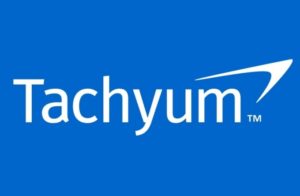 Tachyum, in cooperation with the Ministry of Foreign and European Affairs of the Slovak Republic, will host the event featuring an in-depth discussion on the importance of AI and supercomputers, which will reach human brain-scale AI in 2022. Prominent guests include Ingrid Brocková, State Secretary of the Ministry of Foreign and European Affairs of the Slovak Republic, who will open the discussion; keynote speaker Radoslav Danilak, founder and CEO Tachyum; and Steve Furber, ICL Professor of Computer Engineering at The University of Manchester, who will talk about AI history and AI Human Brain projects. Furber was recently awarded the Charles Stark Draper Prize for contributions to the invention, development, and implementation of reduced instruction set computer (RISC) chips. He developed the first ARM reduced instruction set processor with over 200 billion produced to date.
Tachyum, in cooperation with the Ministry of Foreign and European Affairs of the Slovak Republic, will host the event featuring an in-depth discussion on the importance of AI and supercomputers, which will reach human brain-scale AI in 2022. Prominent guests include Ingrid Brocková, State Secretary of the Ministry of Foreign and European Affairs of the Slovak Republic, who will open the discussion; keynote speaker Radoslav Danilak, founder and CEO Tachyum; and Steve Furber, ICL Professor of Computer Engineering at The University of Manchester, who will talk about AI history and AI Human Brain projects. Furber was recently awarded the Charles Stark Draper Prize for contributions to the invention, development, and implementation of reduced instruction set computer (RISC) chips. He developed the first ARM reduced instruction set processor with over 200 billion produced to date.
UAE government officials and industry representatives have also been invited to present. Mr. Ghazi Atallah, founder and CEO of NXN, the region’s leading consulting and digital services company for smart cities, digital government, and next-generation technological innovation, will talk about the impact of AI supercomputers on industry.
Faster and sustainable computation speed for AI is considered critical for advancement in all aspects of human life – from faster drug discovery and vaccine development to climate change impact assessment, weather forecasting, personalized medicine and more. Solving the world’s problems requires the highest-performance processor available. With Tachyum’s Prodigy Universal Processor, Slovakia delivers a ground-breaking technology and potential solutions to current global concerns with an impact on the economy, global security, the environment and mankind’s future.
“We are proud that the Tachyum Prodigy Processor is powering the Slovakian human brain-scale AI supercomputer, which will be the most powerful the world has seen,” said Danilak. “With a capacity of 64 exaflops, which is multiple times more powerful than the most powerful ones that exist today, this supercomputer will solve mankind’s most complex challenges to help advance all aspects of life. I look forward to discussing the impact of such a machine with attendees at Expo Dubai.”
Prodigy has the potential to create unrivaled computational speed and vast energy saving capabilities for hyperscale, OEM, telecommunication, private cloud and government markets. Prodigy’s 10x lower processor core power consumption will dramatically cut carbon emissions associated with data center usage. Prodigy’s 3x lower cost (at equivalent performance) will also translate to billions of dollars in annual savings to hyperscalers like Google, Facebook, Amazon and Alibaba.
Tachyum’s Prodigy processor can run HPC applications, convolutional AI, explainable AI, general AI, bio AI, and spiking neural networks, plus normal data center workloads, on a single homogeneous processor platform, using existing standard programming models. Without Prodigy, hyperscale data centers must use a combination of disparate CPU, GPU and TPU hardware, for these different workloads, creating inefficiency, expense, and the complexity of separate supply and maintenance infrastructures. Using specific hardware dedicated to each type of workload (e.g. data center, AI, HPC), results in underutilization of hardware resources, and more challenging programming, support, and maintenance. Prodigy’s ability to seamlessly switch among these various workloads dramatically changes the competitive landscape and the economics of data centers.
Expo Dubai is the first World Expo ever hosted in the Middle East, Africa and South Asia (MEASA) region. Through its theme of Connecting Minds, Creating the Future, the Expo aims to inspire people by showcasing the best examples of collaboration, innovation and cooperation from around the world. People interested in attending the special forum featuring Tachyum’s Prodigy in person can register online or watch live streaming.
About Tachyum
Tachyum is transforming AI, HPC, public and private cloud data center markets with Prodigy, the world’s first Universal Processor that delivers industry-leading performance, cost, and power efficiency for both specialty and general-purpose computing. When Prodigy processors are provisioned in a hyperscale data center, they enable all AI, HPC, and general-purpose applications to run on one hardware infrastructure, saving companies billions of dollars per year. A fully functional Prodigy emulation system is currently available to select customers and partners for early testing and software development. With data centers currently consuming over 3% of the planet’s electricity, predicted to be 10% by 2025, the ultra-low power Prodigy Universal Processor is critical, if we want to continue doubling worldwide data center capacity every four years. Tachyum, Co-founded by Dr. Radoslav Danilak with its flagship product Prodigy, is marching towards tape out and chip sampling in 2022, with software emulations and an FPGA-based emulator running native Linux available to early adopters. The company is building the world’s fastest 64 AI exaflops supercomputer in 2022 in the EU with Prodigy chips. Tachyum has offices in the United States and Slovakia. For more information, visit https://www.tachyum.com.
Source: Tachyum

























































